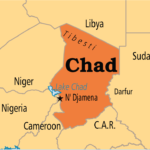Governor Abba Kabir Yusuf of Kano’s victory at the Supreme Court on Friday brings to mind a similar feat recorded by former Governor of Rivers State now Minister of FCT, Nyesom Wike, eight years ago at the apex court.
Like Yusuf, who ran on the platform of the New Nigeria Peoples Party (NNPP) and defeated the ruling All Progressives Congress (APC) in Kano State’s March 18 election, Wike who contested under the Peoples Democratic Party (PDP) kicked out the then ruling APC in Rivers state 2015 election under the leadership of Rotimi Amaechi.
Shortly after the 2015 governorship election in Rivers, Dakuku Peterside, the candidate of the APC in the election, dragged Wike before the Tribunal, seeking nullification of his election.
The Supreme Court has set aside the judgment of the Court of Appeal in Abuja which nullified the election of Governor Kabir Yusuf of Kano State.
A five-member panel of justices on Friday unanimously held that the lower court misunderstood the import of the purported deduction of 165,616 ballot papers in favour of Governor Yusuf.
The lead judgment by Justice Inyang Okoro also held that the issue of Governor Yusuf’s membership was a pre-election matter.
He said the finding that by the virtue of Section 177(c) of the Nigerian Constitution and Section 134(1) of the Electoral Act, Governor Yusuf was not sponsored by the NNPP, was not a finding of the electoral tribunal but a mere observation that his name was not contained in the membership list
“This court has consistently maintained that the issue of nomination or sponsorship of a candidate for an election is completely an exclusive prerogative of the political party,” he held.
In October 2015, the Rivers State Governorship tribunal sacked Wike and ordered fresh elections be conducted in the state, citing non-compliance with the provisions of the Electoral Act.
The three-member tribunal, presided over by Justice Suleiman Ambursa, held that the petitioners successfully proved their case that the election was conducted in total disregard to electoral guidelines.
Specifically, Ambursa said that the process of accreditation for the election was compromised with the use of incident forms rather than adherence to card readers.
It is the view of the tribunal that the election was held contrary to guidelines.
Dissatisfied by the judgement, Wike headed to the Appeal Court, but the Court of Appeal also affirmed the judgment of the tribunal.
Wike approached the apex court and in February 2016, his sack by the tribunal and the Court of Appeal was overturned.
The apex court, in the lead judgement delivered by Justice Kudirat Kekere-Ekun, maintained that Wike was denied fair hearing by the lower courts.
Aside from faulting the lower courts, which it said “improperly evaluated” the case, the apex court decried what it termed undue reliance of appeal court and election tribunal on card reader reports.
The Supreme Court restated its position that reports from the Smart Card Reader Machines the Independent National Electoral Commission, INEC, used for the conduct of the 2015 general elections, cannot override the Voters’ Register, which it said has firm root in the Electoral Act, 2010, as amended.
In a unanimous decision, the Supreme Court said though INEC should be commended for the introduction of the Card Reader “to booster the accuracy and transparency of the accreditation process and to maintain the democratic norm of one-man-one-vote, by detecting multiple voting by voters, “Section 49 (1) and (2) of the Electoral Act which provide for manual accreditation of voters, is a stamp and remain a vital part of our electoral law.”
Like Wike, Like Yusuf
Barely eight years after, Kano’s Yusuf matched Wike’s feat.
In September, 2023, the Governorship election petition tribunal sitting in Kano State sacked Yusuf, and declared the candidate of the APC, Nasir Yusuf Gawuna, as the winner of the March 18th, 2023 election.
The tribunal delivered its ruling via zoom citing security concerns.
In November, the Court of Appeal sitting in Abuja upheld the sack of Governor Yusuf, of the NNPP, and declared Gawuna, the governorship candidate of the APC as the duly elected governor of the state.
In a unanimous judgment of a three-member panel delivered by Justice Moore Adumein, the appellate court dismissed the appeal filed by the Kano Governor against the judgment of the State Governorship Election Petition Tribunal, which declared the Gawuna, as the winner of the state’s governorship election held on March 18.
Like Wike, Yusuf approached the apex court in the land. In its Judgement on Friday, the Supreme Court set aside the judgment of the Court of Appeal in Abuja which nullified the election of Governor Yusuf.
A five-member panel of justices on Friday unanimously held that the lower court misunderstood the import of the purported deduction of 165,616 ballot papers in favour of Governor Yusuf.
The lead judgment by Justice Inyang Okoro also held that the issue of Governor Yusuf’s membership was a pre-election matter.
He said the finding that by the virtue of Section 177(c) of the Nigerian Constitution and Section 134(1) of the Electoral Act, Governor Yusuf was not sponsored by the NNPP, was not a finding of the electoral tribunal but a mere observation that his name was not contained in the membership list
“This court has consistently maintained that the issue of nomination or sponsorship of a candidate for an election is completely an exclusive prerogative of the political party,” he held.

 Join Daily Trust WhatsApp Community For Quick Access To News and Happenings Around You.
Join Daily Trust WhatsApp Community For Quick Access To News and Happenings Around You.


